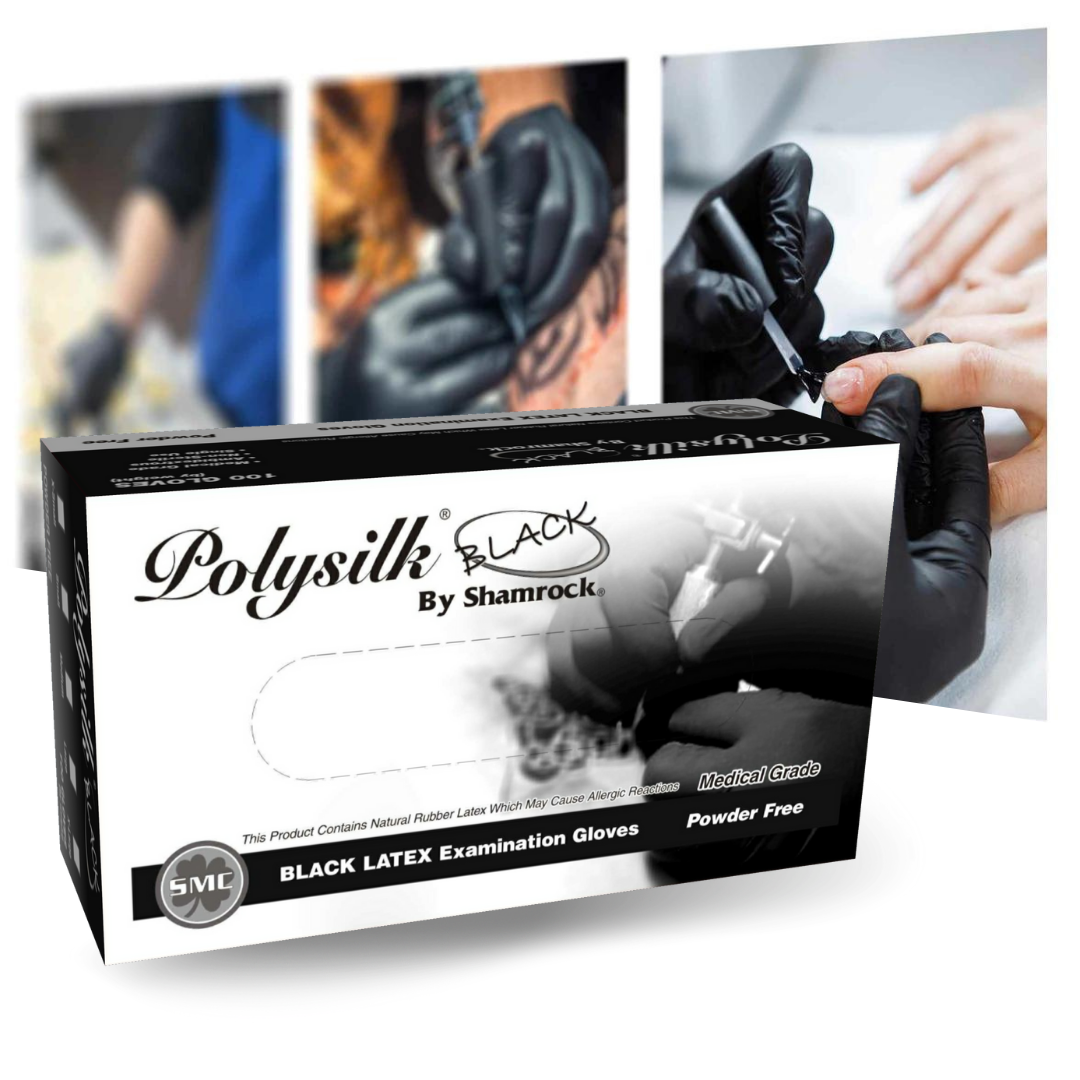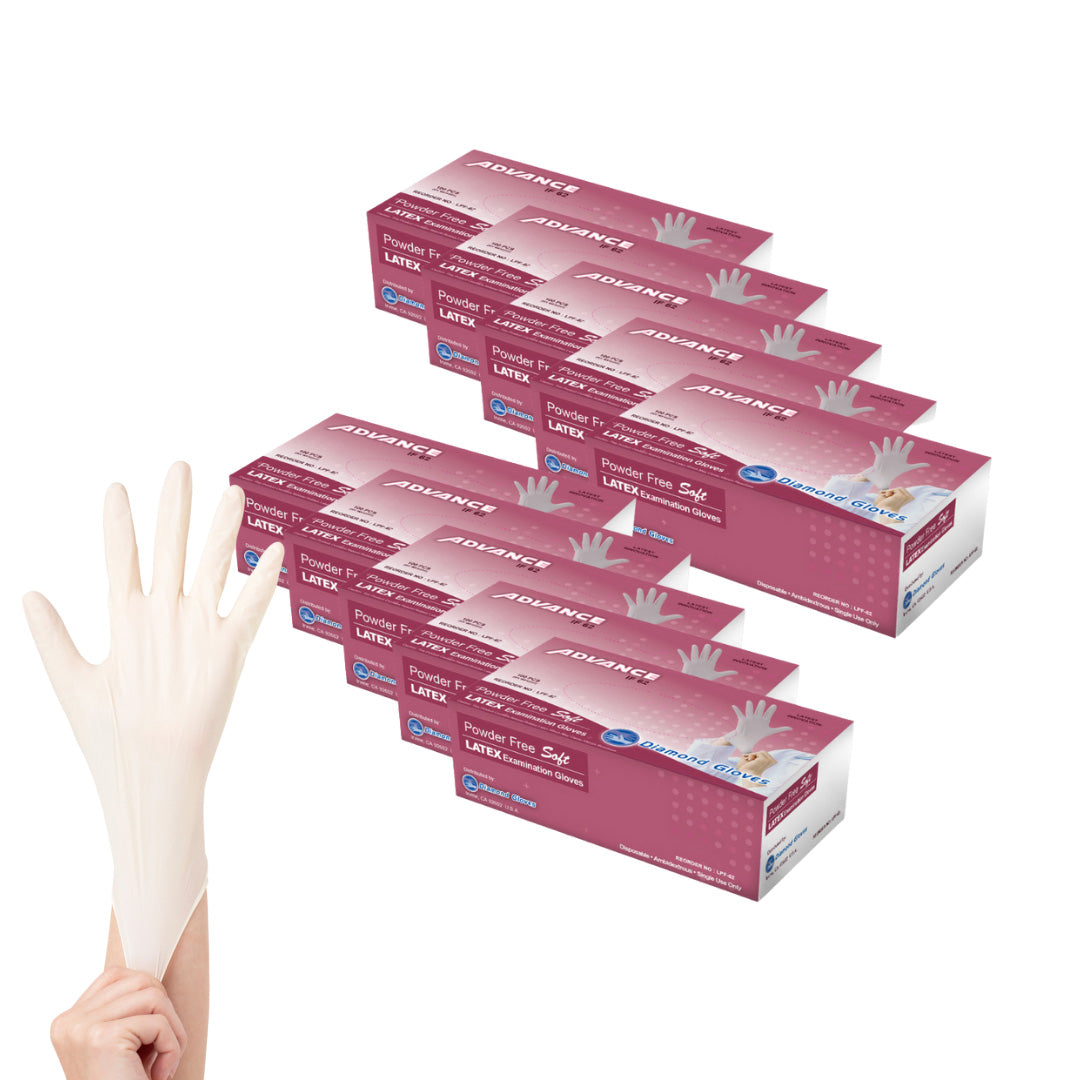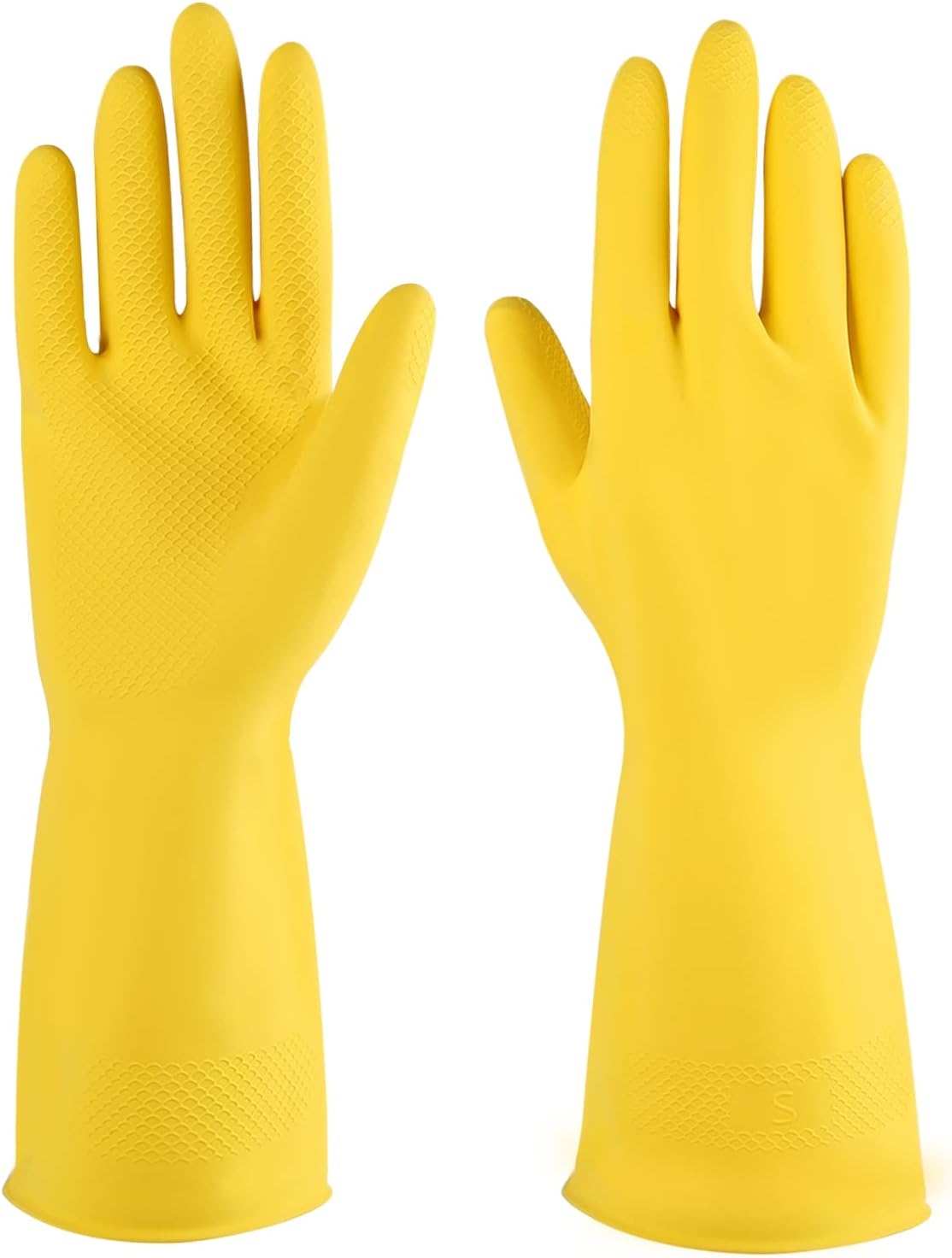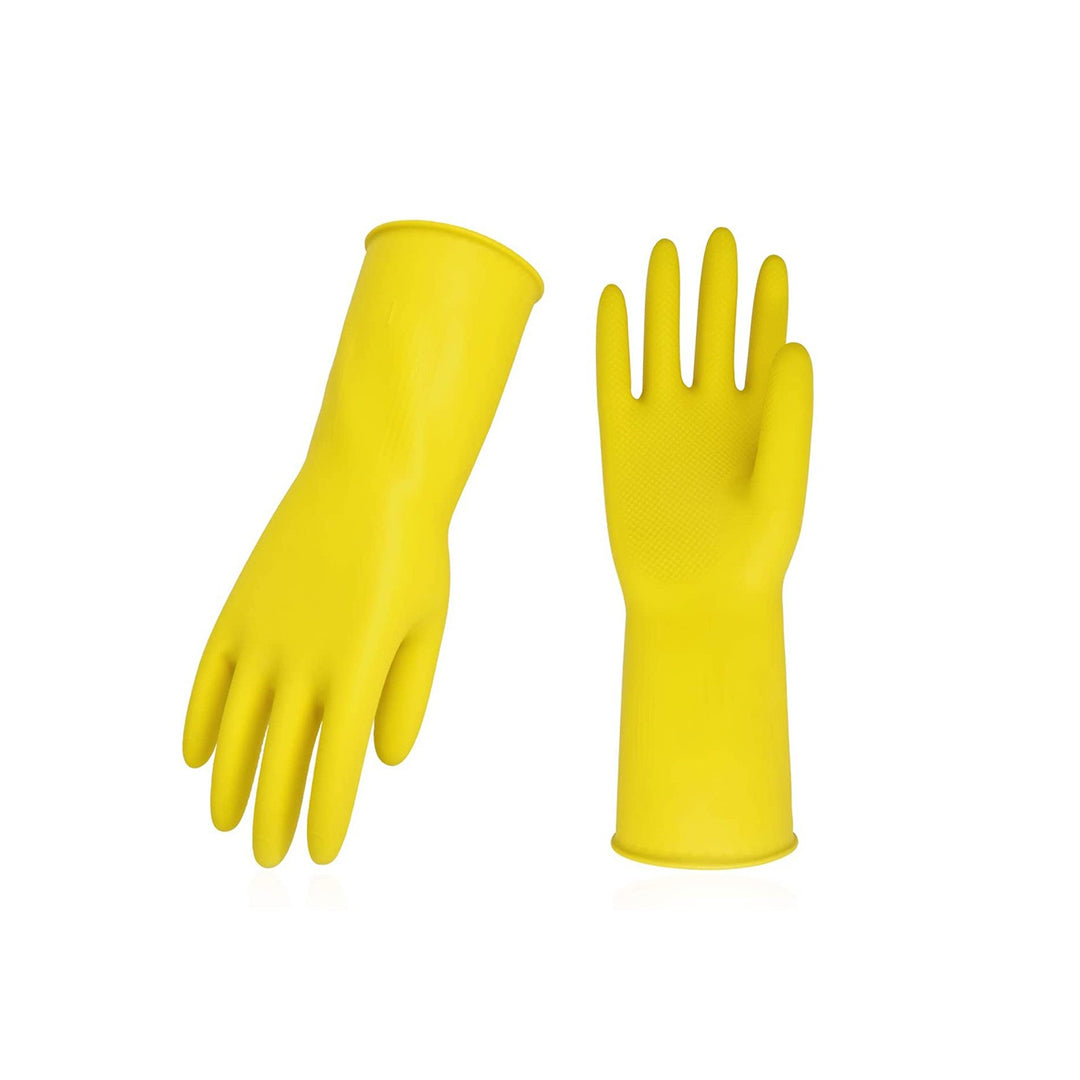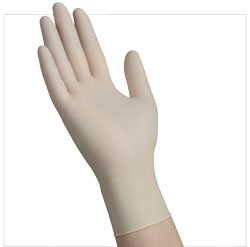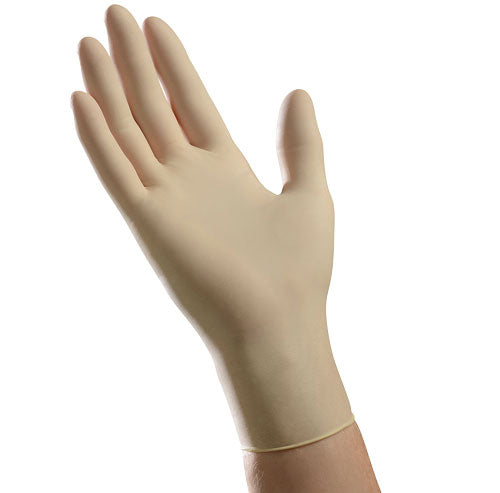Industrial Latex Gloves
Industrial Latex Gloves Best Options
After trying many different type of gloves from amazon, finally found ones with good fit and quality. Would recommend!
Good size, not too tight, not too loose. Strong material, don’t rip like others I’ve used. Recommend
These gloves are thicker and well made. They fit snug, which I like. Met my expectations and would recommend.
Are you looking for an effective way to protect your hands while working in industrial settings? Disposable latex gloves are becoming increasingly popular due to their cost-effectiveness, safety features, and convenience.
Not only do these gloves provide users with excellent protection against various contaminants, but they also offer a number of other crucial benefits that make them ideal for a variety of occupational activities.
What Are Industrial Latex Gloves
Industrial gloves are protective hand coverings designed for use in industrial environments. These specialized items of safety apparel provide protection from a range of hazards, including contact with hazardous substances, extreme temperatures, and mechanical forces such as cuts or abrasions.
Typically fabricated from synthetic materials like rubber or thermoplastic elastomers (TPE), industrial gloves come in an array of shapes and sizes to suit different tasks and applications.
These gloves typically have an exterior made from natural rubber latex as well as an interior composed of soft cotton or polyester linings that provide additional comfort. The exteriors are usually lightly powdered with cornstarch to reduce tackiness when putting them on or taking them off.
Industrial latex gloves offer excellent strength and puncture resistance for tactile sensitivity that helps minimize hand fatigue during extended use. They also feature superior elasticity for enhanced gripping power when performing tasks requiring dexterity, precision, or fine motor control. In addition to having anti-slip properties that significantly reduce the risk of slipping objects while handling wet objects with slippery surfaces like glassware and vessels in laboratory settings.
Importance of Using Gloves in Industrial Environments
Gloves play a critical role in helping to ensure the safety of workers in industrial environments. They provide protection from hazards such as cuts, scrapes, chemical splashes, electrical shocks, and extreme temperatures.
In addition to providing physical protection for workers' hands, gloves can also help reduce worker fatigue and musculoskeletal injuries caused by extended contact with vibrating tools or repetitive tasks.
Hygiene
Gloves also improve hygiene. When wearing appropriate PPE (Personal Protective Equipment), workers avoid direct contact with potentially contaminated surfaces and substances which helps reduce the spread of disease-causing bacteria such as E Coli or Salmonella. Therefore, using gloves not only provides physical protection but also reduces the risk of contamination for both the personnel handling hazardous materials and their colleagues working nearby.
Protection from cuts
Gloves help keep hands safe from cuts, splinters, scrapes, burns, and other injuries when working with dangerous machinery or substances. They can also help prevent contact dermatitis due to harsh chemicals used in manufacturing processes.
Furthermore, depending on the type of glove selected for use in certain industries like food processing or medical care settings; gloves may prevent cross-contamination between surfaces as well as between individuals who work with different products on a regular basis.
Chemical Protections
Gloves may also be necessary to protect against possible exposure to pathogens and dangerous fumes while operating heavy-duty machinery or performing laboratory experiments in some settings.
Depending on specific job roles and additional safety prerequisites put forth by OSHA itself; workers should always wear appropriate clothing which includes but is not limited to: hard hats; eye protection; ear plugs/muffs; respiratory masks; steel toe boots/shoes etc., along with their designated pairs of protective gloves when applicable according to industry standards laid out before them for added protection during their shifts.
Advantages of Using Industrial Latex Gloves
Industrial latex gloves are a type of disposable glove that can be used for basic protection from hazardous materials. They offer several advantages over other types of gloves, such as:
Durability
Industrial latex gloves are strong and durable, making them ideal for use in harsh industrial environments or applications where multiple uses of the same pair are necessary.
Chemical Resistance
Latex provides excellent resistance to most chemicals and solvents, making it an ideal choice when working with hazardous materials or corrosive liquids; this includes both acids and bases.
Comfort
Industrial latex gloves are much softer than other types of disposable gloves, providing superior comfort and flexibility for long periods of time; this makes them perfect for delicate operations or tasks requiring precision handling techniques.
Cost-effective
Compared to many other glove types, industrial latex gloves tend to be relatively inexpensive; this makes them suitable for general-purpose use in many industrial settings where disposable protective equipment is often required in large quantities on a daily basis.
Protective Barriers
When worn properly, these gloves provide effective barriers against bacteria and viruses that could otherwise harm workers; they also help prevent skin contact with harmful substances like oils, greases, dyes, etc., helping protect workers' health while still allowing them to perform their jobs effectively and safely without discomfort or distractions.
What is the difference between industrial and medical-grade gloves?
Industrial-grade gloves tend to be less expensive than medical grades due to lower manufacturing costs and shorter shelf lives. In addition, industrial-grade gloves can lack the necessary flexibility which allows them to fit correctly on hands leading to an uncomfortable fit that may decrease hand dexterity as well as increase the risk of puncture if worn too tightly.
On the other hand, medical-grade gloves generally have longer shelf lives due to higher quality materials used during production and tighter regulations around standards for sterility. Additionally, these types of gloves offer optimum comfort through superior finger-tip sensitivity feel along with improved grip capabilities when compared with industrial grades; this makes them ideal for use in precision tasks such as surgery or testing laboratories where detail is key factor of success.
What industries use latex gloves?
Latex gloves are widely used in many different industries, such as healthcare, hospitality, cleaning and janitorial services, food preparation and service industries, laboratory settings, daycare facilities, and childcare centers. They are also often found in construction sites and manufacturing workplaces.
What are industrial gloves used for?
Industrial gloves are protective wear used primarily for safety and medical purposes. In industrial settings, they serve to protect workers from potential hazards such as chemical contact, cuts, burns, electrical shock, abrasions, and extreme temperatures. Industrial gloves vary in terms of material and features based on the particular application or use required by the user.
Which is stronger latex or nitrile?
When it comes to strength, there can be no single right answer since both materials have their own distinct advantages and disadvantages. Latex gloves have been around for many decades and offer excellent dexterity, fit, comfort, and grip in wet or dry conditions.
Nitrile is a synthetic polymer that has become increasingly popular in recent years due to its resistance to punctures, acids, oils, and solvents as well as to offering extended protection against harsh chemicals.
Where to buy Industrial Latex Gloves
Getting the best Industrial Gloves has never been this easy! All you have to do is enter your information. Then, we’ll take it from there.
Here’s how the process works:
- Create an account if you are a new customer; log in if you’re an existing customer.
- Search Industrial Latex Gloves at gloves.com
- Add your chosen Industrial Latex Gloves.
- Proceed to checkout.
Yup, it really is that easy! So what are you waiting for?
Order your industrial latex gloves from gloves.com today and save up to 50%
Keep up-to-date with our guides and find the best glove options for your industry
Guides to help you choose

Mil Thickness Explained

Best Heavy-Duty Nitrile Gloves for Work



